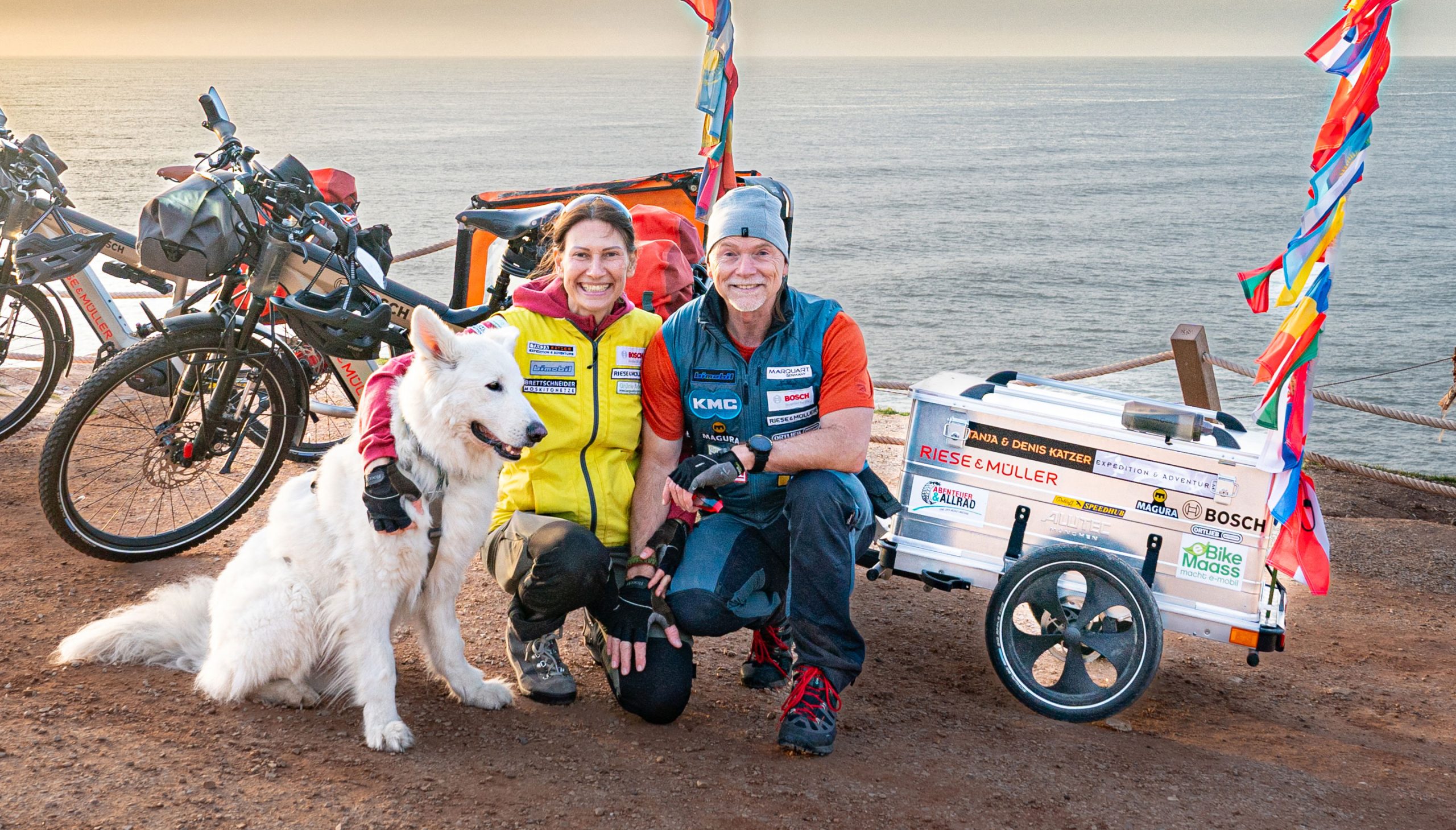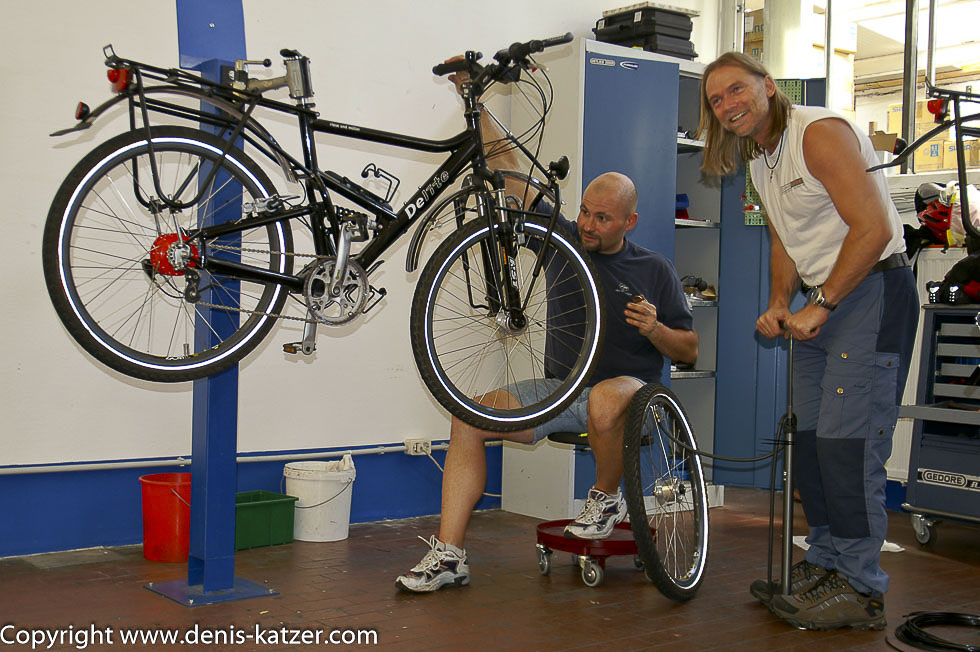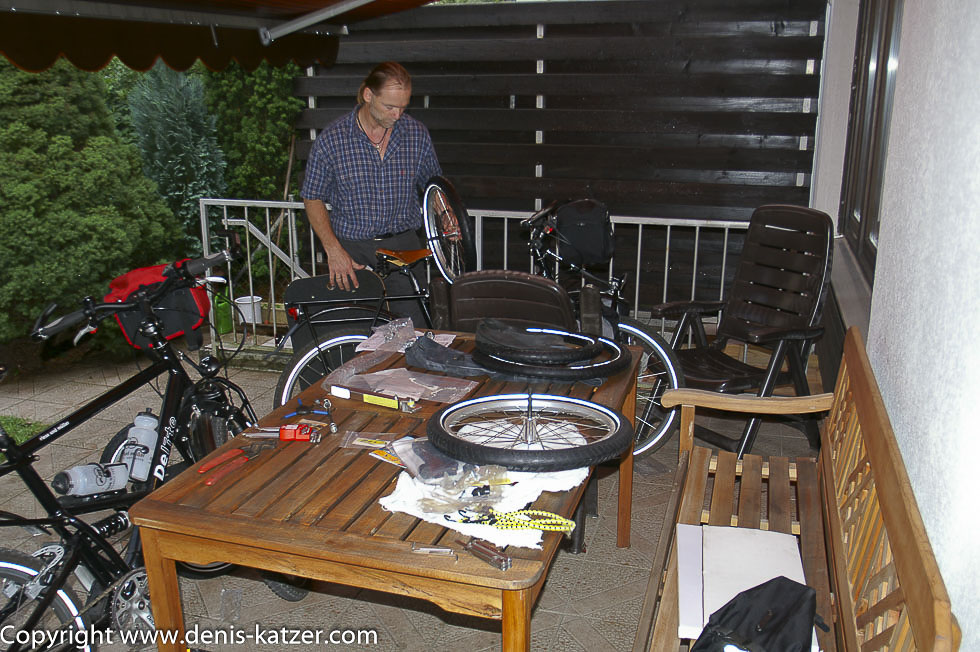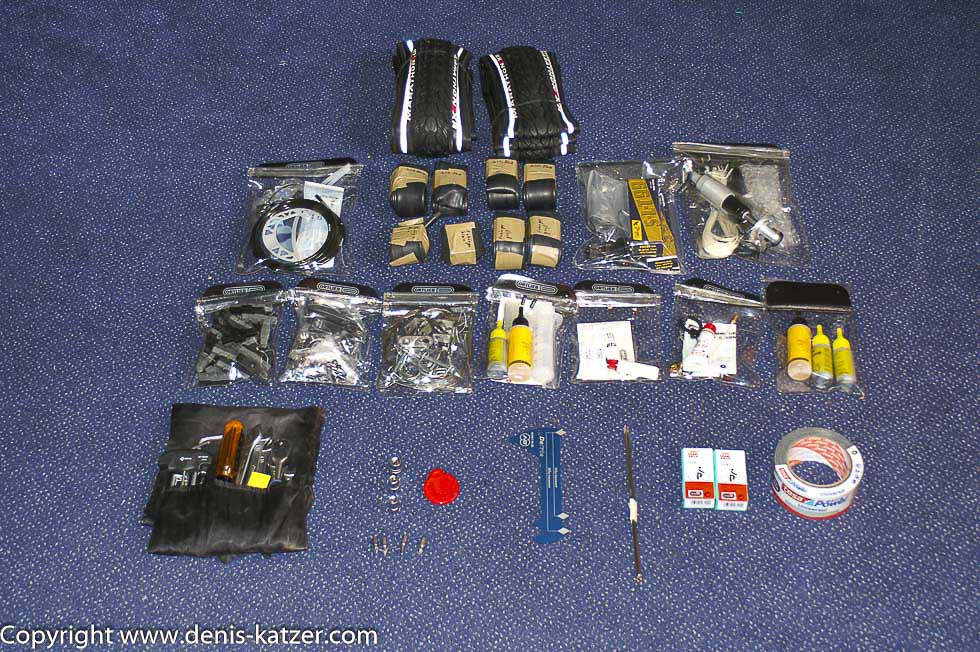
Foreword: Unknown, dangerous Russia?





“They will beat you to death, dismember you and bury you,” the cleaning lady at our fitness center, who comes from Russia, told us. “What with the bikes through Russia? You must be crazy. The mafia will rob you first and then kill you,” warns another with a knowing look. “They can use everything there and will steal the bikes out from under you,” we hear and try not to be dissuaded from our plans despite everything.
“To Russia and Siberia? My God, how are you going to survive the cold?” we heard again and again. “Just watch out in the cities. The crime rate there is unbelievable,” many other friendly people warned us, whereupon our firm intentions to travel 20,000 km by bike from Germany via the Czech Republic, Poland, Ukraine, Russia, Siberia and Mongolia to China and finally through Burma on an elephant began to falter.
“Did you know that Moscow is the most expensive city in the world? The other cities in Russia must also be incredibly expensive. 200 to 400 euros per night are not uncommon. How are you going to finance this trip? Well, I would think twice,” a friend advised us.
“What, cycling through Russia? That’s impossible,” said the woman at a visa office with a condescending undertone. “But I’ve already heard of successful bike tours through Russia,” I said timidly, adding: “Anything is possible if you want it to be.” An exasperated snort answered me through the line. “You can want as much as you like, I don’t think you know what you’re talking about. If you are really planning to travel this country by bike, I need you to tell me the exact route. Some parts of the country are closed to foreigners. You are not allowed to go there. Do you understand? Restricted military areas! Wouldn’t be good if you were caught there. So, when I have the exact route planning from you, I’ll ask our contact addresses what kind of visa is possible for you,” the voice replied somewhat more conciliatory. After some back and forth, I learned that our planned Russian leg of the Trans-East Expedition would fail simply because of the length of the visa required. According to my planning, we need at least a year to cycle through Russia to the Mongolian border. We also want to cross the frozen Lake Baikal in winter on bikes and reach the Siberian taiga in the north of Mongolia on horseback. The Tsaatan live there. A tribe that still uses reindeer to transport their loads.
Despite all the horror stories, we remain steadfast, but further statements such as: “In Russia you are not allowed to camp, you have to register in a hotel every night.” Or: “On my tour of Russia, I suddenly encountered heavily armed figures in the middle of the forest. Thanks to my good contacts with the mafia, they only wanted to drink vodka with me, thank God.” Or: “Just watch out for the ticks. They’re even more dangerous than the mafia. It will soon be impossible to stay free of borelosis on your tour. The whole of the East is infested with ticks”, gave us food for thought and we had to ask ourselves whether it wasn’t irresponsible to travel to this supposedly unknown country plagued by ticks, mosquitoes, flies, the mafia and regulations, despite all the advice and warnings.
However. Tanja and I didn’t let them get us down. Many of the warnings certainly have a true background. But we cannot imagine that Russia is only inhabited by brutes. Ultimately, it’s like before every expedition. Our fellow human beings warn us out of sheer fear of losing us. Some know what they are talking about, but most of them get their knowledge from others and the media, so their statements are rarely well-founded. It is also often the case that people do not want one of their own kind to leave their familiar habitat in search of adventure and experience in the big wide world. It’s strange, but sometimes it seems to me that the saying goes: “If I can’t manage to detach myself from my daily obligations, then neither should you.” So we don’t make it easy for each other to leave our usual rhythm, our usual living space, and for Tanja and me this is precisely where the exciting, the mystical, the joy, the new, the learning and above all the experiences lie that are far removed from any surface and often reach the depths of our own “I”, our own “soul”.
But it’s not just about our “I”, about traveling into our own inner selves, but also about breaking down the eternal prejudices of us humans. So that people here say: “Those over there on the other side of the border are dangerous”, and when we have arrived on the other side despite all the warnings, they are surprised that the people we have just come from have not cheated us or, in the worst case, shot us. Everyone berates everyone else and their own religion is always the best. During our research and preparations about the countries in the East, we also heard a lot of good things. About the warm hospitality, the helpfulness, the friendliness, the joie de vivre, the fantastic landscapes and much more. With our big trip, Tanja and I are keen to build bridges between cultures and countries. To clarify and clear up misunderstandings. With our great journey, it is important to us to draw attention to Mother Earth. That the planet we live on is also alive and not dead matter. It is important to us that our children can still see trees and hear birds chirping tomorrow. For us, there is nothing better than to talk and write about the people and cultures we meet from our personal perspective with our life project, the 30-year expedition (The Great Journey). We want to be as honest and direct as possible about our life story, the associated adventures and experiences. Above all, we want to be the representative eyes for people who, for whatever reason, are unable to travel in their lives. It gives us pleasure to be a positive piece in the mosaic of life.

